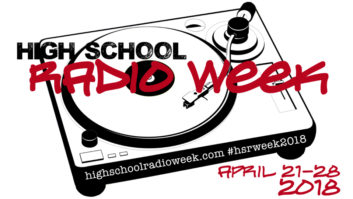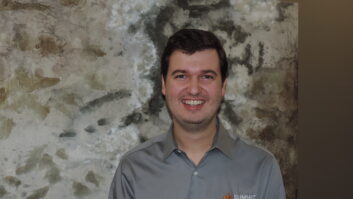
Ronald Wittebols is the assistant manager and technical director of the award-winning WBFH(FM), “The Biff,” which he describes as an “excellent” high school-based radio station operating at Bloomfield Hills High School, Bloomfield Hills, Mich.
Radio World: What is the idea behind/goal of this high school radio station?
Ronald Wittebols: If you think about it, a high school radio station is the best “lab” class any school district could offer. Every discipline and theory to which a child is exposed during the school day can be practiced behind a broadcast console: speaking, writing, mathematics, team building, interpersonal expression, conflict resolution, marketing and sales, etc. It is an extension of the curricular philosophy of the Bloomfield Hills School District and an opportunity to put everything a student learns into play.
RW: How did you get involved and what do you see your mission?
Wittebols: I’ve loved radio since I was 4 years old, but didn’t quite know how to get on the air when most others did. There was no high school radio from where I came, so I studied Mass Comm/Radio/TV at Wayne State University, hoping to stumble into at least something. I made professional stops at WXYT(AM), WYUR(AM) (working with the legendary Jimmy Launce) and WDIV(TV). Being at the right place at the right time afforded me the knowledge that Bloomfield Hills School was looking for an assistant manager at WBFH.
My first tour with Bloomfield Hills Schools started in 1987. I’ve always been associated in one way or another with the district to ensure that the program is and remains vibrant. My mission is to keep the station in the public ear by mentoring and coaching our students — as well as adult volunteers — in the art of broadcasting.
RW: What are some of the differences between a “professional” or “adult” radio station and working with the kids? Both equipment-wise and staff-wise?
Wittebols: Our equipment is of professional caliber: Wheatstone, Electro-Voice, Comrex, ENCO automation, etc. As a noncommercial broadcast station, we don’t run advertising, although we do welcome program underwriting. Our staffers are offered the freedom to create the programming with which they feel comfortable. They do follow a fundamental broadcast log and are expected to fulfill the license through public service announcements and community news, but for the most part, they are the content creators and deliver some of the most hilarious and compelling radio I’ve heard in years. Yes, even better than what some of our “adult” commercial broadcasters offer.
RW: How is the relationship between your radio station and the school’s authorities? Are they behind you and providing support?
Wittebols: Our school board and administrators love our program so much that they’ve put WBFH front-and-center in our brand-new multimillion-dollar high school. We have “glass wall” studios that face our main commons/gathering area, so we have great visibility in a high-traffic area. Talk about support from the powers-that-be! (Of course, we are a multiple-award-winning program, so that does tend to bring us to the attention of our colleagues.) We have included a school board trustee on our Tuesday afternoon lineup, as he does his own brand of sports talk.
Any school district can purchase the equipment, build the studios and launch a radio or streaming broadcast station; however, it takes a great deal of support, cooperation, patience, goodwill and dedication to really build a great program. As I mentioned, radio is the best lab class a district can offer, but it takes mentoring from all academic disciplines under one roof to broaden a student’s experience and give him or her the potential to shine behind the microphone.
My big project with the move to our new high school studios is to include retirees, mentors and performers in our program. There are a great deal of broadcast professionals “on the beach” who would fit in quite well with our community-focused programming. We’re in the early stages of recruiting some of these people and will take our time to make sure they fit in with our district’s educational philosophy.
RW: Have you produced any young broadcast engineers?
Wittebols: We have had a few who have picked up the engineering aspect of broadcasting. One who comes to mind is Paul Stewart, now an ENCO employee, who is trying to restore Albion College’s student broadcast station to its former glory. He has really taken to the engineering side of things and is studying business while writing tech instructions for ENCO. A very bright, professional young man who has great business sense and a promising future ahead. Currently, we have a few students who have mastered the IT-side of automation and production, but are not interested in RF engineering.
See other Five Questions interviews here.











